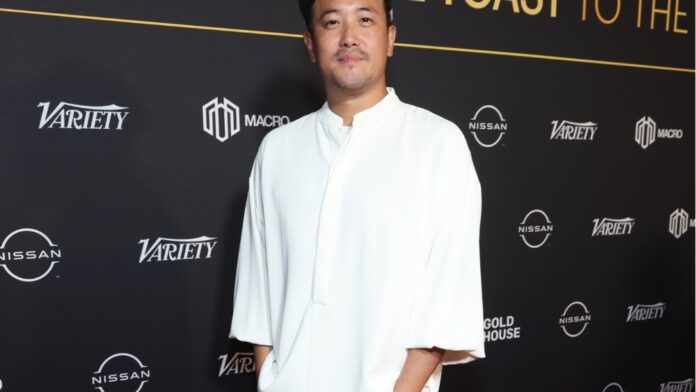It’s been a tough few years in the Asian film market since the pandemic, but “3 Body Problem” and “Better Days” director Derek Tsang believes that we can expect growth in Asian co-productions, with grants and regional tie-ups playing a growing role in boosting the sector.
“I can see that many filmmakers are already exploring the possibilities of co-producing films with other regions and their producers. Even our government in Hong Kong is encouraging filmmakers to explore the opportunity by providing schemes that grants co-productions with other countries,” Tsang told Variety in an interview at the recently concluded Hong Kong FilMart.
Tsang began working as an actor in Hong Kong in 2002, and made his directorial debut with “Lover’s Discourse” in 2010. He became the first Hong Kong helmer to earn an Oscar nomination for his 2019 drama “Better Days” – it was nominated for best international feature film at the 93rd Academy Awards, after it won eight awards at the 39th Hong Kong Film Awards.
In 2021, the news broke that he would direct and co-executive produce Netflix’s adaptation of Liu Cixin’s science-fiction trilogy, “3 Body Problem” for David Benioff and D.B. Weiss.
Asia remains an extremely important market for Netflix.
“With Korea and Japan already proving to be major players in their content, Netflix will continue to look for and develop Asian stories that not only cater to Asian audiences, but to the world. My personal wish is that we, Chinese filmmakers as a whole, can bring forth more Chinese stories that resonate with audiences across the globe,” Tsang said.
So are there any signs that Hollywood will start coming back to Asia?
“Honestly I don’t really think the U.S. has ever really left Asia per se, with platforms such as Netflix and the major studios still very influential in most of the Asian regions. But whether or not we will see a tremendous growth in terms of their presence, I’ll have to say I don’t really see it at the moment. Even with recent hits from Asia such as ‘Shogun’ and the proliferating films centering around Asian stories or characters in the U.S., I just don’t think the U.S. industry itself is in a very healthy position to expand more aggressively in Asia,” Tsang said.
He believes the Hong Kong market is in a strange place right now.
“A peculiar moment of time I would say. On the one hand you get record breaking box office hits like “The Last Dance” and “Twilight of the Warriors,” but it’s also one of the worst years in history for film attendance and the number of film productions that’s happening in our city,” he said.
Much of this mirrors cinema in the rest of the world, but he hopes it’s a transitional patch and believes there are lots of young talents doing great work.
“That being said, I do think that we, as a whole, need to find ways to make Hong Kong stories more relevant to international audiences. Co-productions with other regions is a way to both finance and broaden our perspective and I believe there are already people working on achieving that, including myself,” he said.
Hong Kong film-makers basically have two options.
“On the one hand Hong Kong filmmakers are fortunate to have to option to shoot and make films in China, a market that is enormous to say the least, and filmmakers from Hong Kong will need to learn and adapt to the need of the China audiences,” Tsang said.
“On the other hand, I do believe co-production is another way forward; what kind of stories can filmmakers in Hong Kong find that resonate or work with other regions. Local talents and stories will continued to be nurtured and told, I have no doubt in that, but to develop and grow, we need to set our eyes further beyond our city,” Tsang added.
Tsang is currently developing projects in features and drama series format for both domestic and international markets. He and his producer Jojo Hui set up a production company during the pandemic to produce premium drama series centering on pan-Asian stories that target international audiences.

